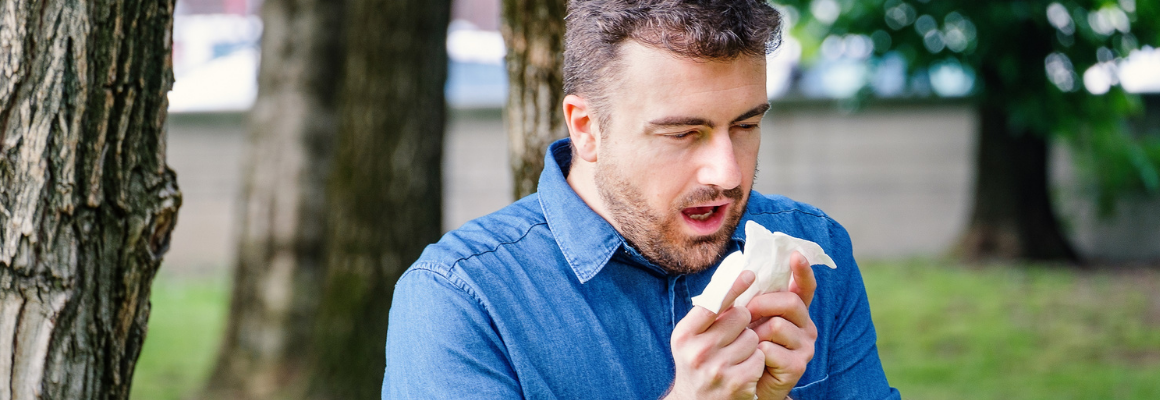This month is peak time for millions allergic to tree pollen. The types of trees most likely to release pollen that triggers hay fever are alder, birch, hazel, and horse chestnut. Pollen levels are at their highest at the beginning of the day, when they rise with the warming air, and at the end of the day when it is cooling down. Tree pollen can be carried long distances by the wind or even a light breeze, so that you do not need to be in direct contact with birch trees to experience symptoms.
Find out more about tree pollen.
Is climate change impacting hay fever?
Yes!! Pollen counts are influenced by several factors including climate change. Climate change is causing increased temperatures and CO2 emissions, boosting plant growth and pollination. The hay fever seasons as a result are starting earlier and lasting longer.
How to reduce exposure to pollen?
Monitor pollen forecasts daily and if possible, stay indoors on high pollen days. Hay fever symptoms usually appear when the pollen count exceeds 50. Rain washes pollen from the air so pollen counts should be lower on cooler, wet days.
If it is not possible to remain indoors during high pollen days, then the following will help to reduce your exposure:
- Wear a mask, wraparound sunglasses and a hat with a large peak or brim when outdoors to keep pollen allergens out of your eyes, face, and hair.
- Shower and wash your hair and change your clothing, especially before going to bed
- Avoid outdoor activities that will expose you to pollen, such as mowing lawns or raking leaves.
- Keep windows closed at home and in the car. Most importantly in the early morning and evening when the pollen count is higher.
- Avoid drying clothes/ linen outside as pollen can be brought inside on the clothes.
- Wipe pets’ coats with a damp microfibre cloth to remove pollens when they have been out.
What treatment is right for you?
To help you identify the right treatment for you during the hay fever season, here are the most common options available:
Antihistamines
Antihistamines are the first line of treatment for hay fever, can reduce the symptoms of runny nose and itch, especially in the nose, throat, and eyes. It is recommended to use a long acting, non-sedating and are available in both tablet and syrup form suitable for children or those unable to swallow a tablet. If you need expert advice on the most suitable choice for you or your child’s needs, then speak to a pharmacist or your GP.
Tip: Start treatment early (up to two weeks before peak pollen times can help)
Nasal spray
Nasal steroid sprays help to reduce inflammation associated with the ‘stuffy nose’ feeling of hay fever and may also help to reduce allergic eye symptoms. It is important to take your nasal spray correctly to get the most from your medication – BSACI: how to apply a nasal spray.
Eye drops
Saline eye drops can help to control the symptoms of hay fever which cause eyes to itch, be watery, red, and irritable.
Non-drug treatments
Saline nasal sprays and irrigation can help soothe inflammation in the nose and clear the nasal passage of any impurities and allergens.
Nasal allergen barrier balms are applied to the rim of the nostril and helps catch any pollen/allergens before they get into your nasal passages and trigger allergy symptoms.
What to do if your hay fever treatment is not working?
If your symptoms do not improve using a daily antihistamine and/or other allergy medications e.g., nasal spray, or your symptoms last more than two weeks and affect you carrying out everyday tasks, seek advice from a healthcare professional such as your GP or practice nurse.

 Helpline
Helpline